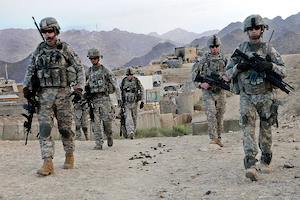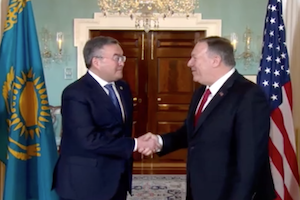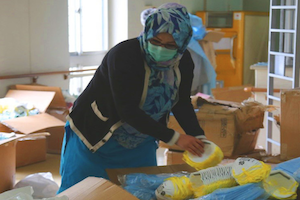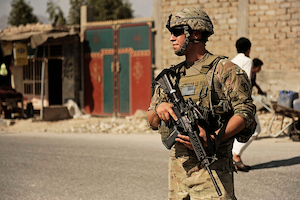Russia Goes Bounty Hunting in Afghanistan
By Stephen Blank
July 8, 2020, the CACI Analyst
The revelations that Moscow paid Taliban warriors bounties to kill U.S., British, and other allied soldiers in Afghanistan is already generating a scandal in the United States. Yet for those who closely monitor Russian foreign policy in Central Asia and Afghanistan, this represents a particularly grisly escalation of policy but not a change in strategy. Moscow has long been determined to enhance its position with the Taliban and accelerate the ejection of U.S. forces from Afghanistan, which it regards as a threat to its position in Central Asia and to Russia. In Moscow’s imagination, the presence of several U.S. and/or NATO airbases in Afghanistan could strike Russian targets in Central Asia. Moreover, Russia has consistently expressed a visceral reaction to the presence of foreign military forces, especially Western ones, in and around Central Asia.

Central Asian Salafi-Jihadi Groups and the US-Taliban Peace Agreement
By Uran Botobekov
June 3, 2020, the CACI Analyst
The U.S.-Taliban agreement obliges the Taliban to sever ties with al Qaeda and other Central Asian terrorist groups. Nevertheless, Central Asian Salafi-Jihadi groups celebrate the deal as a “victory.” The Taliban’s relationship with these groups will likely continue to develop in secret, and Central Asian regimes must seriously prepare for a new redistribution of power and resources in Afghanistan after the withdrawal of U.S. troops.

U.S. Presence in Central Asia: Realities and Perspectives
By Nurlan Aliyev
May 27, 2020, the CACI Analyst
In early February, U.S. Secretary of State Michael Pompeo visited Kazakhstan and Uzbekistan. He was received by the two heads of states in Nursultan and in Tashkent, Pompeo attended a C5+1 Ministerial with the foreign ministers of the five Central Asian republics to stress “U.S. support for a better connected, more prosperous, and more secure Central Asia” (State.gov). These thoughts are reflected in the new U.S. Central Asia Strategy. (State.gov). The renewed U.S. interest in Central Asia comes against the backdrop of China’s growing economic involvement in the region and Russia’s strong political and security relations with the Central Asian republics. Despite the Trump administration’s declarations of commitment to enhancing relations with the regional states, the perspectives of the U.S. in Central Asia should be examined.

COVID-19 and Afghanistan's Conflict Dynamics
By Sudha Ramachandran
May 26, 2020, the CACI Analyst
The Covid-19 crisis is widely expected to have devastating impact on war-ravaged and resource-scarce Afghanistan, and could even extract a human toll that exceeds that on account of decades of fighting in the country. However, the pandemic has the potential to bring positive change. It provides space to the main conflict actors to co-operate in providing treatment to people in parts of the country that are under Taliban control and thus beyond the reach of government health workers. It will require the conflict actors to silence their guns and at least temporarily put aside their decades-old hostility.

Central Asia Nervously Awaits Withdrawal of Foreign Militaries from Afghanistan
By John C. K. Daly
April 8, 2020, the CACI Analyst
After 18 months of negotiations, the U.S. and the Taliban signed their bilateral landmark “peace agreement” in Doha on February 29, alongside representatives from more than 30 nations. Afghanistan’s northern neighboring post-Soviet states, Tajikistan, Uzbekistan and Turkmenistan, are concerned whether Afghanistan’s post-ceasefire instability will intensify and subsequently spill across the borders after foreign military missions withdraw. If the unrest roiling Afghanistan erupts into open military confrontation following the departure of foreign military forces, the question is whether the three nations alone can mount an acceptable response, particularly Turkmenistan whose international neutrality stance is recognized by the United Nations.



